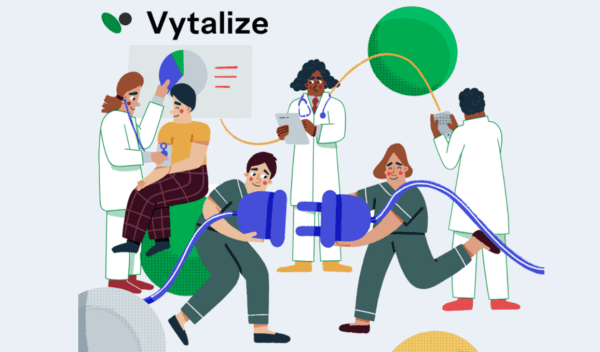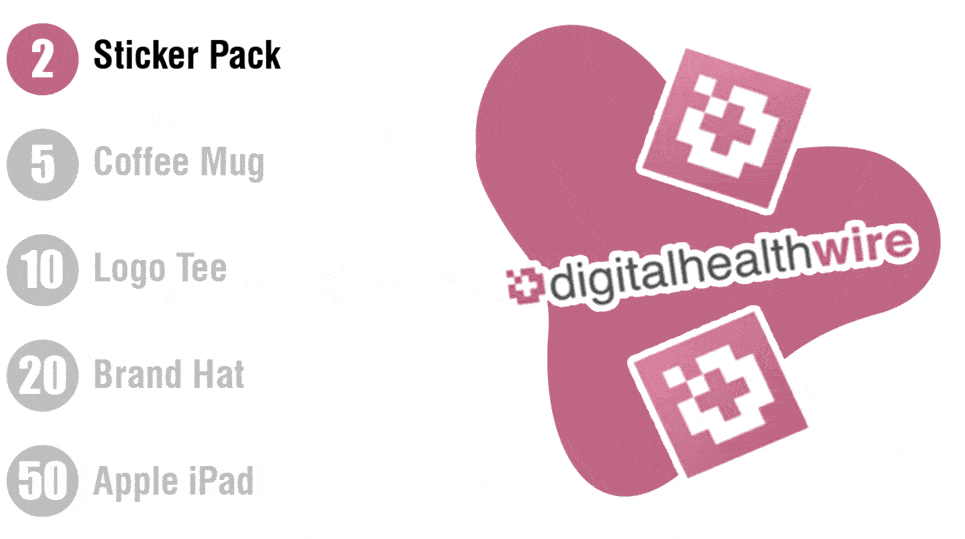|
Vytalize Funding | Redox + Google Cloud
February 27, 2023
|
|
|

|
|
Together with
|

|
|
|
“If you align the incentives with the goals, then everything sort of falls into place.”
|
|
Vytalize Health CEO Faris Ghawi
|
|

|
|
If there was still any debate about the flavor of the month in the digital health VC club, primary care enablement company Vytalize Health just settled it with its $100M Series C round.
Primary care enablement is the name of the game 2023. In the last few weeks alone, Aledade acquired Curia, Pearl raised $75M, and Privia launched new ACOs in Connecticut, North Carolina, and Delaware.
Vytalize is now adding to that momentum with a nine figure funding round less than a year after raising its $53M Series B. The company got its start as a Medicare-focused primary care practice in 2014, but has since vertically integrated to combine a risk-bearing entity with an in-home clinic model that supports other clinics with their transition to value-based care.
- The Vytalize platform’s feature list includes all the usual suspects: patient data analytics, practice management tools, enrollment support, and finance solutions.
- Vytalize’s biggest differentiator is that it equips its clients with a virtual and in-home clinic that helps manage high-risk populations outside of the office setting – a task made easier due to the acquisition of patient communication company MedPilot in 2021.
The influx of capital will help Vytalize integrate a wider network downstream from its primary care partners (hospitals, specialty networks, ancillary providers), while also establishing relationships with more Medicare Advantage and commercial plans.
- Vytalize currently partners with 400 practices delivering care to more than 250k senior patients. Roughly two-thirds of these are small practices, with the remaining third mostly larger provider orgs.
- The funding will also help Vytalize keep ahead of any growing pains. It now operates in 36 states, up from 16 during its last raise in April 2022.
The Takeaway
Decisions made at the primary care level have a huge impact on care quality and costs given how much downstream utilization is directed by PCPs. Plenty of startups have sprung up to help providers improve these decisions while being reimbursed for their success, but Vytalize is looking to carve out a niche as a novel type of ACO with its own virtual / in-home clinic to help deliver better patient outcomes in the white space between appointments.
|




|
|
unResign From Nursing with connectRN
connectRN’s new campaign unResignation Notice is helping nurses recommit to the profession they love by highlighting both the challenges they face and the reasons why they want to return. “It’s not in a nurse’s nature to quit. Something needs to change, and it’s not the nurses.” Learn more and sign your own unResignation Letter here.
|
|
3 Ways to Ease the Pain of Provider Credentialing
Is provider credentialing adding cost and time to your bottom line? Check out Medallion’s new blog for three ways to ease the pain of provider credentialing so that you can focus on delivering quality care.
|
|
- Google Cloud & Redox Data Exchange: Google Cloud and Redox are teaming up to improve healthcare data exchange between providers, health plans, and digital health startups. The partnership brings the Redox Healthcare Integration platform to the Google Cloud Marketplace to help organizations maximize the use of their existing data by easily onboarding it into Google Cloud products like Healthcare Data Engine and Healthcare API.
- Glooko + Sanofi: Glooko unveiled a new integration between its diabetes management platform and Sanofi’s SoloSmart connected device for insulin injection pens. The partnership enables SoloSmart users to record insulin doses, dates, and times of injection, then visualize their data in the Glooko app and share it with their care teams. Glooko’s Sanofi integration builds on earlier partnerships with Novo Nordisk and Eli Lilly, rounding out its partner roster with the three main players in the diabetes pharmaceuticals space.
- Apple No-Prick Glucose Tracking: Not to be left out of the diabetes news cycle, Apple reportedly hit a major milestone in adding no-prick blood glucose tracking to the Apple Watch. While that would certainly be a holy grail feature addition for the world’s most popular wearable, the new technology reportedly still requires wearing an iPhone sized device on the arm, and it’s likely that we’re still years away from seeing anything resembling an Apple Watch that can track blood glucose hit the market.
- Bionic Finger Imaging: Another cool (yet lightyears away from market) med-device story came from a China-based engineering team that developed a “smart bionic finger” that uses subsurface tactile tomography to image anatomic structures – just by touching human skin. The authors envision this technology being used by bionic robots, either to assist doctors or for non-medical applications.
- Wearable Data Privacy Concerns: A Lancet Digital Health review found that deidentifying data from wearable devices likely doesn’t do enough to protect users’ privacy, and that there’s a high risk of reidentification when that data is shared. Duke University researchers performed a meta-analysis of 72 studies, finding that several of the studies showed an ability to reidentify individuals based on their EEG data (17 studies), walking gait (13), or ECG data (8).
- MDI Health Scores $20M: MDI Health raised a $20M Series A round (total funding now $26M) to invest in R&D for its medication management platform. For a monthly membership, MDI Health offers health plans access to its AI algorithm that analyzes EHR data to identify the patients with the highest risk of adverse drug reactions and see recommended changes to patients’ treatment plans.
- Eko Launches SENSORA Murmur Detection: Digital stethoscope startup Eko is bringing advanced non-invasive heart disease detection to primary care with the launch of its FDA-cleared SENSORA Cardiac Disease Detection Platform. SENSORA uses AI to identify structural murmurs during routine physical exams then provides downstream visibility into patient care journeys through integration with Eko’s new Care Pathway Analytics software.
- Tele-ECG Risk Stratification: Elsewhere in tele-cardiology land, researchers had primary care clinicians perform electrocardiography exams on 675 patients then measure the results with dedicated software and route the data to offsite cardiologists for diagnosis. A comparison of the patients’ ECG results and echo screening results revealed that patients with abnormal ECGs had a 2.2x higher chance of major heart disease in their echo exams, suggesting that virtual care is a viable tool for improving cardiology risk assessments in low-resource regions.
- Novartis Partners With Dawn Health: Novartis entered a partnership with Dawn Health to develop new chronic condition management tools. The collaboration will see Dawn and Novartis build a virtual care platform (patient mobile apps, symptom monitoring, CDS services, clinical offerings) geared toward conditions with an unmet need around disease progression such as multiple sclerosis, hypertension, cardiovascular disease, and breast cancer.
- Talkspace Employer Expansion: Talkspace launched a new employer-focused Talkspace Engage mental health portal that lets employees access mental health resources and virtual classes. The portal aims to improve participation in mental health benefits by providing a library of resources categorized by topic, as well as monthly engagement plans that HR teams can use to promote the resources and gain insight into employee usage metrics. No update yet on Amwell’s acquisition of the company.
- PathWell Scores $10M: Home health provider PathWell secured $10M in funding to grow within its current markets of Connecticut and West Virginia while adding new hospice offerings and IV services. PathWell confirmed that its focus remains on organic growth and acquisitions that can accelerate its exposure to Medicare Advantage plans.
|
|
Clear Arch Health Unlocks Turnkey Virtual Care
Clear Arch Health’s turnkey remote patient monitoring and PERS solutions are fully customizable to meet the unique needs of every organization. Discover how Clear Arch Health is helping hospitals, physicians groups, and home health agencies effectively manage patient care – whenever and wherever it’s needed.
|
|
Selecting Your Drug Database and Clinical Decision Support Solution
Do your providers need easy access to real-time drug knowledge and clinical decision support? Join Synapse Medicine CEO Clement Goehrs, MD, MSc on March 8th to discover the key factors to consider when selecting the right drug database and CDS solution for your health tech product.
|
|
Clinical Documentation Integrity For VBC
The growing use of risk-adjusted reimbursement in outpatient settings means clinical documentation needs to keep up, or health systems risk leaving revenue on the table. Check out Nuance’s new blog to learn how shifting reimbursement models make clinical documentation excellence more important than ever, and how AI can help you achieve it.
|
|
|
Share Digital Health Wire
|
|
Spread the news & help us grow ⚡
|
|
Refer colleagues with your unique link and earn rewards.
|

|
|
|
|
Or copy and share your custom referral link: *|SHAREURL|*
|
|
You currently have *|REFERRALS|* referrals.
|
|
|
|
|